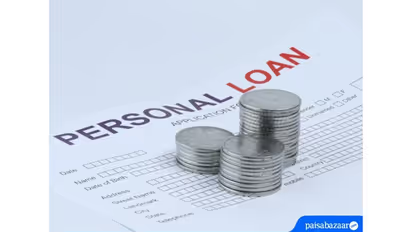Follow these Tips to Boost your Chances of Availing Personal Loans

Synopsis
If you are planning to apply for personal loan, here are a few tips that you can follow to improve your chances of getting loan approval:
In times of financial emergencies, personal loan is an ideal credit choice due to its unsecured nature, no end use restriction, quicker disbursals and minimal documentation. As personal loan does not have an underlying asset, lending it poses a credit risk for lenders. To mitigate this risk, banks and NBFCs become more stringent when assessing a personal loan application.
If you are planning to apply for personal loan, here are a few tips that you can follow to improve your chances of getting loan approval:
1. Maintain your credit score to 750 or more
When assessing your personal loan application, lenders pull your credit score to ascertain your creditworthiness. They usually prefer sanctioning loans to applicants having credit scores of 750 or more. This is because applicants having such high credit scores usually have greater credit discipline, thereby, posing lower credit risk for lenders. Applicants having lower credit scores, on the other hand, may either face rejection or get their loans approved at higher interest rates.
The requirement for a personal loan can arise anytime. Therefore, you should check your credit scores regularly. By doing this, you will gain sufficient time to take corrective steps towards improving your credit score, if low. Reviewing your credit report regularly will also help you in identifying incorrect details in the credit report. It will also give you time to report these issues to the respective lenders and credit bureaus for correction. A rectified credit report may increase your scores and your chances of getting personal loans.
2. Ensure your EMIs are below 50-55% of your net salary
Before approving a personal loan application, lenders want to ensure the applicant has the sufficient capacity to repay the proposed loan. Therefore, they usually sanction personal loans to applicants having their existing loan EMIs, including proposed loan EMI, within 50-55% of their net salary. Those exceeding this limit will have lower chances of availing personal loans. Such applicants should choose longer tenures to reduce the EMIs of their proposed loan. This might bring their EMIs within the aforementioned limit and thereby, improve their chances of loan approval.
3. Do not apply with multiple lenders in a short span
As part of their loan evaluation process, lenders request your credit report from credit bureaus every time you apply for a loan with them. Such lender-initiated credit report requests are known as hard enquiries. With each hard enquiry, credit bureaus decrease your credit score by a few points. Thus, multiple hard enquiries within a short period can lead to sudden drop in your credit score, thereby, reducing your probability of availing the loan. Prospective personal loan borrowers can avoid this by visiting online financial marketplaces. Such marketplaces allow you to compare personal loan offers from multiple banks and NBFCs and then, apply for personal loan online. Credit report requests raised by such marketplaces are considered as soft enquiries and they do not affect your credit score.
4. Do not change your job frequently
Lenders prefer sanctioning personal loans to applicants having employment stability. They avoid sanctioning personal loans to those who change their jobs often. This is because such actions reflect instability in their career as well as in their income and increases credit risk for lenders. Therefore, some banks and NBFCs want their salaried applicants to have at least six months to a year of work experience with their current employers. If you are planning to apply for a personal loan in the near future, avoid changing your job to boost your chances of securing the loan.
Disclaimer: This is a featured content